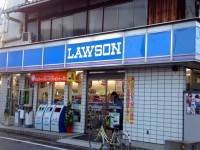
Convenience stores have become a part of our daily lives. The convenience store concept was first born in Dallas, Texas in 1927. The Japanese borrowed the concept from America, but just as with everything the Japanese borrow, we made it our own. Today there are more than 40,000 convenience stores, and they can be found everywhere in Japan. Known as ‘konbini’ in Japanese, they are clean, brightly lit and very convenient, are open for 24 hours and sell a wide variety of products. On average, every person in Japan spends 1000 Yen (about $12.50 USD) at a convenience store every week, and purchase 10 rice balls from a convenience store every year. In metropolitan areas, the average distance between convenience stores is 900 feet (about 275 meters). There are about the same number of convenience stores in Japan as there are schools and universities.

The size of one store may be small (typically about 100 square meters or about 1,075 square feet), but the number of products is amazing. The typical convenience store offers 3000 different types of products in one store including meals, snacks, sweets, cold and hot beverages, cosmetics, magazines and comic books to name just a few.
Strong competition between the major chains forces each chain to constantly produce new and innovative products. Each year, the number of new products is 70% of the total number of goods offered at the stores. The selection changes frequently and varies by season. For example, in the autumn and winter months, large metal containers of oden (a slowly-simmered pot dish) can be found in just about every convenience store all over Japan.
Japan’s first convenient store, modeled after American Seven-Eleven convenience stores, was built in Toyosu, Tokyo in 1974 during the heyday of Japanese economic growth. They became popular because of the advantages they offered: a wide selection of goods and long operating hours. Konbini offers other services, too. We can pay our electric, gas and telephone bills at konbini. We can buy baseball tickets, airplane tickets, send packages and pick up mail sent from Amazon or Rakuten.

Most convenience stores follow the franchise system adopted in the U.S. As part of a franchise chain, stores pay franchise fees. In return, the company distributes products to the stores. An important part of the distribution process is the Point of Sales (POS) system. The information about the price, the product code and other information is obtained from the bar code printed on





